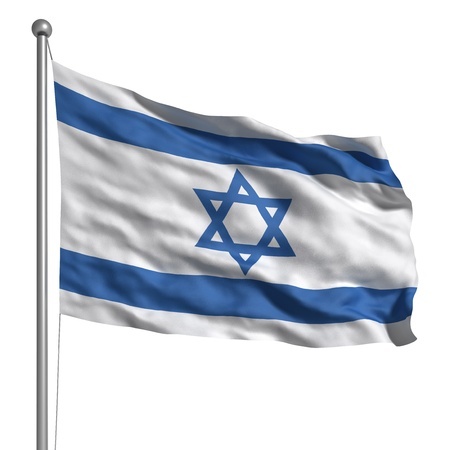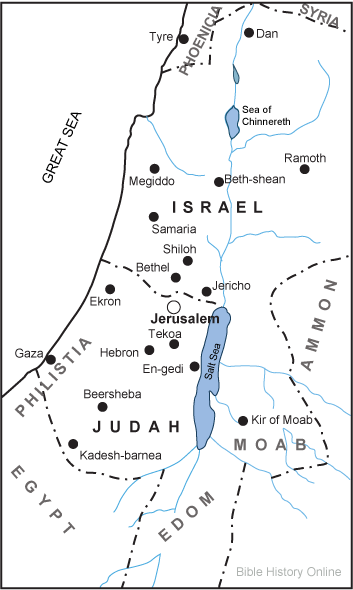Let’s first look at what the Bible has to say about Israel.
God’s plan was that Israel would become a “multitude” of peoples, meaning that a multitude of ethnic groups would seek to join themselves to the community of Israelites.
Now YHVH had said unto Abram, Get thee out of thy country, and from thy kindred, and from thy father’s house, unto a land that I will shew thee:
2 And I will make of thee a great nation, and I will bless thee, and make thy name great; and thou shalt be a blessing:
3 And I will bless them that bless thee, and curse him that curseth thee: and in thee shall all families of the earth be blessed. (Genesis 12:1-3)
And God Almighty bless thee, and make thee fruitful, and multiply thee, that thou mayest be a multitude of people. (Genesis 28:3)
Behold, I will make thee fruitful, and multiply thee, and I will make of thee a multitude of people; and will give this land to thy seed after thee for an everlasting possession. (Genesis 48:4)
God gave Israel a literal piece of land, real estate that would be their inheritance forever.
Behold, I will make thee fruitful, and multiply thee, and I will make of thee a multitude of people; and will give this land to thy seed after thee for an everlasting possession. (Genesis 48:4)
Ye shall inherit their land, and I will give it unto you to possess it, a land that floweth with milk and honey: I am the Lord your God, which have separated you from other people (Leviticus 20:24)
Look down from thy holy habitation, from heaven, and bless thy people Israel, and the land which thou hast given us, as thou swarest unto our fathers, a land that floweth with milk and honey. (Deuteronomy 26:15)
While Israel became recognized by the United Nations as a nation again in 1949, certainly not all Israelites are living in the land God gave them, nor are their boundaries as large as what God promised to them (see Numbers 34:1-12).
While this is certainly a start to a return to the land, Scripture promises that the return will be complete.
33 When thy people Israel be smitten down before the enemy, because they have sinned against thee, and shall turn again to thee, and confess thy name, and pray, and make supplication unto thee in this house:
34 Then hear thou in heaven, and forgive the sin of thy people Israel, and bring them again unto the land which thou gavest unto their fathers. (1 Kings 8:33-34)
If my people, which are called by my name, shall humble themselves, and pray, and seek my face, and turn from their wicked ways; then will I hear from heaven, and will forgive their sin, and will heal their land (2 Chronicles 7:14)
This verse cannot be a reference to the United States or any other nation except for Israel, or else Scripture is not true. This is not a verse that Christians can claim, if Israel and the church are distinct.
8 Remember, I beseech thee, the word that thou commandedst thy servant Moses, saying, If ye transgress, I will scatter you abroad among the nations:
9 But if ye turn unto me, and keep my commandments, and do them; though there were of you cast out unto the uttermost part of the heaven, yet will I gather them from thence, and will bring them unto the place that I have chosen to set my name there.
10 Now these are thy servants and thy people, whom thou hast redeemed by thy great power, and by thy strong hand. (Nehemiah 1:8-10)
Even though Israel has been exiled and scattered to the farthest horizon, God still looks on them as his people.
14 And I will bring again the captivity of my people of Israel, and they shall build the waste cities, and inhabit them; and they shall plant vineyards, and drink the wine thereof; they shall also make gardens, and eat the fruit of them.
15 And I will plant them upon their land, and they shall no more be pulled up out of their land which I have given them, saith YHVH thy God. (Amos 9:14-15)
Therefore as I live, saith YHVH of hosts, the God of Israel, Surely Moab shall be as Sodom, and the children of Ammon as Gomorrah, even the breeding of nettles, and saltpits, and a perpetual desolation: the residue of my people shall spoil them, and the remnant of my people shall possess them. (Zephaniah 2:9)
7 Thus saith YHVH of hosts; Behold, I will save my people from the east country, and from the west country;
8 And I will bring them, and they shall dwell in the midst of Jerusalem: and they shall be my people, and I will be their God, in truth and in righteousness. (Zechariah 8:7-8)
Verses for Further Study:
(hover over reference to read verse)
- Psalm 135:12
- Isaiah 49:8-9
- Isaiah 60:21
- Jeremiah 30:3
- Jeremiah 32:37-38
- Isaiah 50:6
- Ezekiel 11:17
- Ezekiel 28:25
- Ezekiel 34:13
- Ezekiel 36:12
- Ezekiel 36:28
- Ezekiel 45:8
- Hosea 1:9-11
Review
So Ephesians says that God has only one people.
That the Gentiles should be fellowheirs, and of the same body, and partakers of his promise in Christ by the gospel. (Ephesians 3:6)
Scriptures also clearly teach that only Israel is God’s people.
5 Now therefore, if ye will obey my voice indeed, and keep my covenant, then ye shall be a peculiar treasure unto me above all people: for all the earth is mine:
6 And ye shall be unto me a kingdom of priests, and an holy nation. These are the words which thou shalt speak unto the children of Israel. (Exodus 19:5-6)


